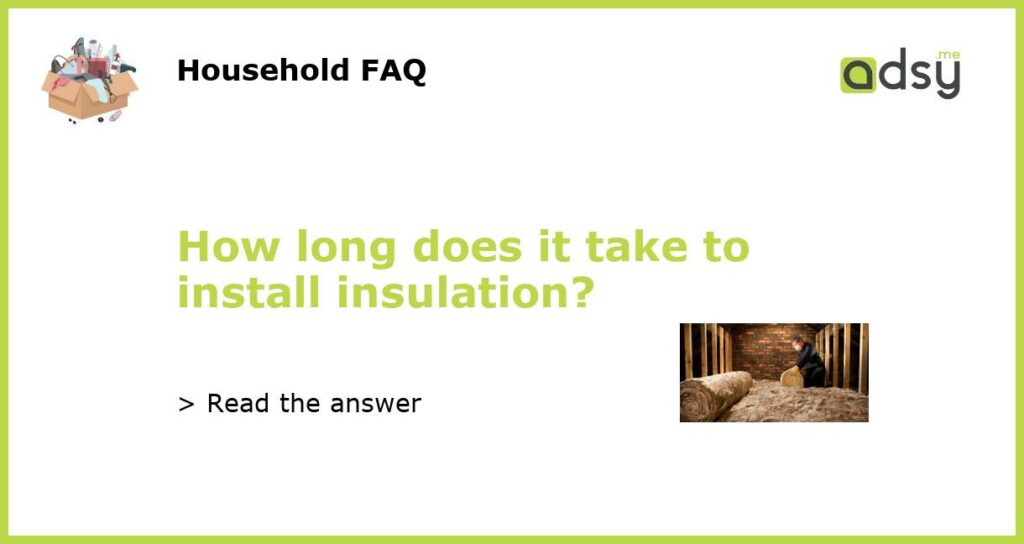Understanding the Process of Insulation Installation
Installing insulation in your home is an excellent way to increase energy efficiency and reduce heating and cooling costs. However, one common question that homeowners have is how long the installation process takes. The answer to this question can vary depending on several factors, including the size of the project, the type of insulation being installed, and the experience of the installer. In general, though, the installation process can be completed relatively quickly, allowing you to start reaping the benefits of insulation in no time.
Factors Affecting Insulation Installation Time
Several factors can impact the length of time it takes to install insulation. The size of the project plays a significant role, with larger homes or commercial buildings naturally taking longer to insulate than smaller residential properties. Additionally, the type of insulation being installed can also affect the installation time. Traditional insulation materials like fiberglass batts or rolls typically take longer to install compared to blown-in insulation or spray foam insulation.
Another factor to consider is the experience and expertise of the installer. Hiring a professional insulation contractor who has extensive experience in the industry can help expedite the installation process, ensuring that the project is completed efficiently and effectively.
Average Installation Times for Different Types of Insulation
The average installation time for insulation can vary depending on the type of insulation being installed. Here are some rough estimates for common types of insulation:
- Fiberglass batts or rolls: This traditional insulation material typically takes the longest to install. On average, it can take anywhere from a few days to a couple of weeks to fully insulate a home, depending on the size of the property.
- Blown-in insulation: This type of insulation is usually faster to install compared to fiberglass batts or rolls. With the help of specialized equipment, installers can blow loose insulation material into the desired areas quickly and efficiently. For an average-sized home, blown-in insulation installation can typically be completed within a day.
- Spray foam insulation: Spray foam insulation is known for its quick installation process. In many cases, it can be applied in just a matter of hours, depending on the size of the project.
Hiring a Professional Insulation Contractor
When it comes to insulation installation, hiring a professional contractor is crucial. Not only will they have the necessary knowledge and expertise to complete the installation correctly, but they can also ensure that the project is completed in a timely manner.
Before hiring a contractor, it is essential to do your research and find a reputable company with a track record of successful insulation installations. Look for customer reviews and testimonials to gauge the quality of their work. Additionally, don’t hesitate to ask for proof of insurance and relevant certifications to ensure that the contractor is qualified for the job.
By hiring a professional contractor, you can have peace of mind knowing that your insulation installation will be completed efficiently and effectively.
Benefits of a Timely Insulation Installation
Completing your insulation installation in a timely manner offers several benefits. Firstly, insulation helps to reduce energy consumption by providing a barrier against heat loss or gain. By insulating your home promptly, you can start enjoying a more comfortable indoor environment while also saving on energy costs.
Secondly, insulation can improve indoor air quality by reducing the infiltration of outdoor pollutants, allergens, and moisture. By installing insulation promptly, you can create a healthier living environment for you and your family.
Lastly, insulation can enhance the resale value of your home. By investing in insulation and completing the installation quickly, you can attract potential buyers who value energy efficiency and lower utility costs. This can lead to a higher resale value for your property in the future.

